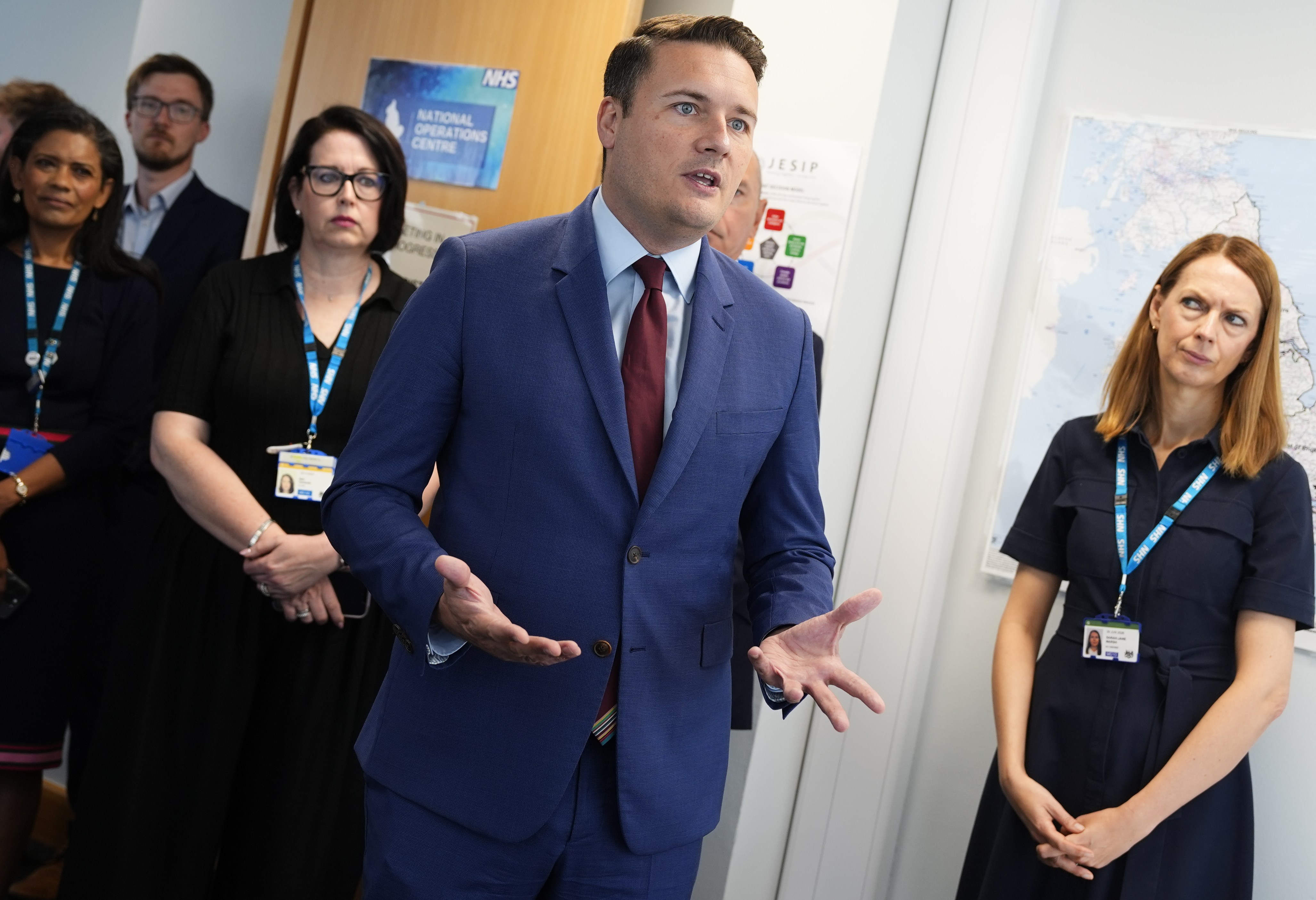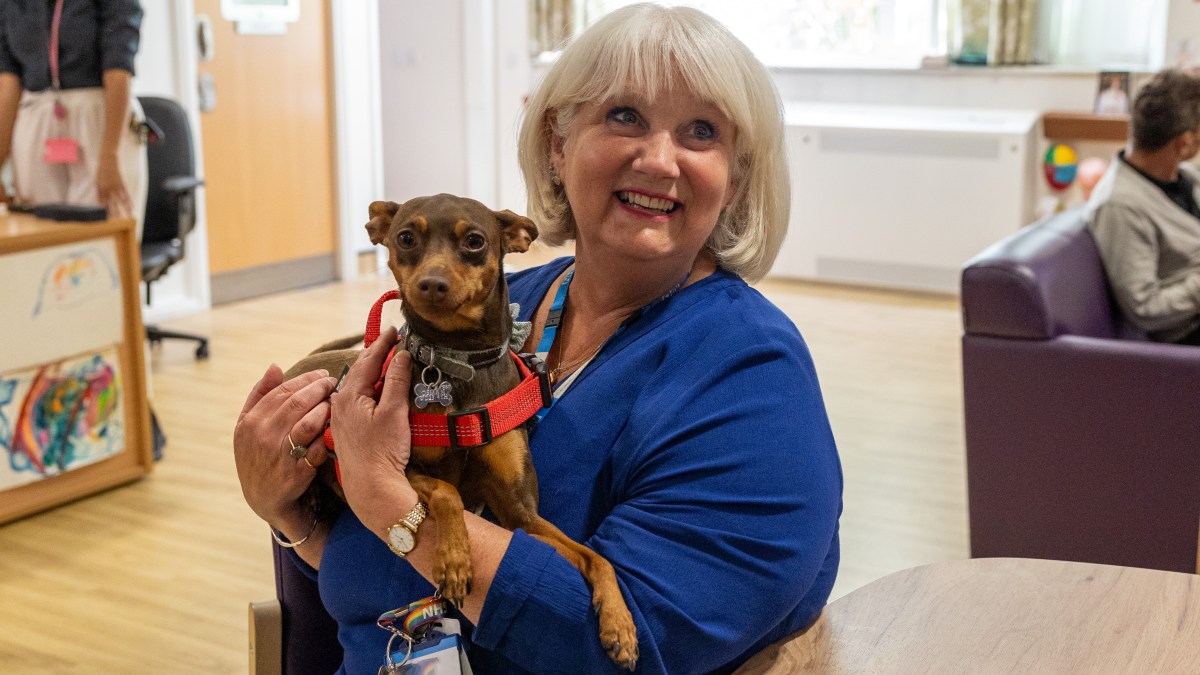Britain must tackle the mental health crisis among the young or risk “writing off a whole generation”, an NHS chief has warned.
Claire Murdoch resigned as NHS England’s national director for mental health last week, saying Labour’s “political leadership don’t want to engage with me”.
In her first interview since then, she said it was vital that mental health did not become a “Cinderella service” and that its share of NHS spending was maintained. She is particularly concerned about a surge in anxiety and depression among the young, contributing to nearly a million people aged between 16 and 24 being out of work or education, which she said was part of “the aftermath of Covid”.
Murdoch, who remains chief executive of Central and North West London NHS Foundation Trust, said society “owe[s] it to this generation”, which had made “sacrifices” to protect older people during the Covid lockdowns. Young people with mental health conditions are nearly five times more likely to be out of work, and Murdoch called for a “concerted, joined-up approach” to address the problem.
”We must not write off a generation. If we can correct things for them now and support them now, getting them into further training or employment will give them a foundation to a happier, fulfilled, productive life. It is good for the economy too. Some of those young people will be having children of their own soon, who will be being born into workless households.”
The number of children being referred to NHS mental health services each month is nearly twice as high as before the pandemic: 829,000 under-18s received help last year.
Murdoch, a registered mental health nurse for 43 years, said it was essential that children “learn the strategies to build personal resilience” and cope with social media pressures. “Toxic narratives” about mental health conditions being overdiagnosed were unhelpful, she said.
Murdoch said school attendance was vital to “learn the habits such as setting an alarm every day” which enable people to enter the workforce and hold down a job. “Sometimes you just have to knuckle down. First jobs aren’t always easy; they’re not always the most interesting.”
Murdoch, who was appointed NHS England mental health director in 2016, oversaw an expansion of services, including the introduction of mental health support teams in schools. These provide evidence-based therapy and support to pupils, and Labour has committed itself to ensuring they are introduced nationally by 2030.
• NHS to open network of mental health A&Es across England
Murdoch welcomed the priority Labour gave mental health in its election manifesto, including a commitment to recruit 8,500 mental health staff.
However, in her resignation letter to Sir Jim Mackey, the NHS chief executive, she said that the proportion of NHS funding given to mental health was falling, stating: “Maintaining share of NHS spend on mental health will be critical, although it fell last year and will again this year. It likely will continue to do so over the next three years. I hope I am wrong.”
Labour has put a pledge to cut hospital waiting lists at the centre of its agenda, and Murdoch said it was vital that the same “relentless focus and priority” was applied to mental health. “History tells us that mental health can very quickly become a Cinderella service,” she said.
Ring-fenced funding for mental health was set in 2016, with a “mental health investment standard” ensuring that the share of NHS funding spent on mental health cannot fall. However, analysis shows that mental health services’ share of the NHS budget edged down fell 9 per cent in 2023-24 to 8.78 per cent in 2024-25. Wes Streeting, the health secretary, has confirmed it will fall again this year.

Wes Streeting
JORDAN PETTITT/PA
In her resignation letter, Murdoch said: “It seems that it is common knowledge that change at the top is wanted. You have told me that a new person to lead the sector is wanted by our political leadership … realistically I can’t lead the sector when the political leadership don’t want to engage with me.”
Murdoch is a popular figure among healthcare leaders, and mental health charities said they were dismayed by her resignation.
The health department issued a pointed response to Murdoch’s resignation, stating: “There hasn’t been as much progress on mental health outcomes for patients in the past year as we’d have liked, despite a big funding increase.”
Murdoch’s colleagues have said ministers are not paying enough “strategic attention” to mental health. Baroness Watkins of Tavistock, a crossbench peer and a departing NHS England board member, told Health Service Journal this week that she was “extremely” worried that mental health investment was going to be watered down by government.
Murdoch, 64, began working as a mental health nurse at Friern Hospital in north London, which was a “big Victorian asylum”. She said: “It had thousands of patients, many of whom spent their entire lives there, from the age of 14 until they had died. I would read patient case notes and weep.”
The number of mental health beds in England has fallen from about 180,000 at the start of her career to 20,000. Murdoch said the answer to rising mental health problems, and concern about this fuelling violent offences, was “not just to lock up more people, because in the days when we did, society was no safer and the homicide and suicide rates were far higher”.
• Nearly 400 people killed by mental health patients in six years
There remain catastrophic failures by NHS mental health services — including the case of the Nottingham triple killer, Valdo Calocane, who was not forced to take injectable antipsychotic medication because he did not like needles. Murdoch said it was vital that these failings were “turned into action”, pointing to NHS England ordering an overhaul of “assertive outreach” services in the wake of the Nottingham killings to ensure high-risk patients remained on medication.
A Department of Health and Social Care source said: “This government inherited a broken NHS and mental health services suffering from years of neglect.
“We’ve already increased mental health spending by £688 million in the current financial year and hired almost 7,000 additional mental health workers.
“Despite the big increase in funding and staff, there hasn’t been as much progress on mental health outcomes for patients in the past year as we’d have liked. We are determined to change that. We thank Claire for her service and wish her well.”

